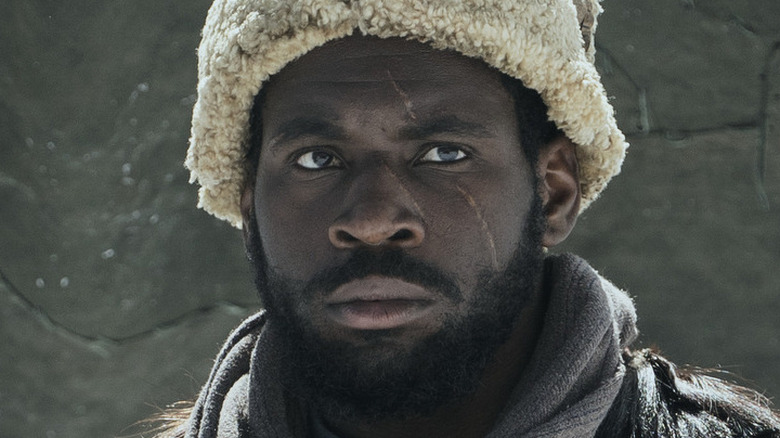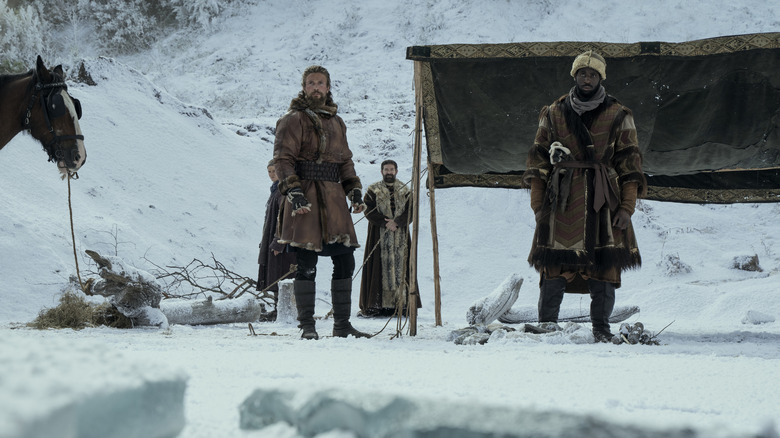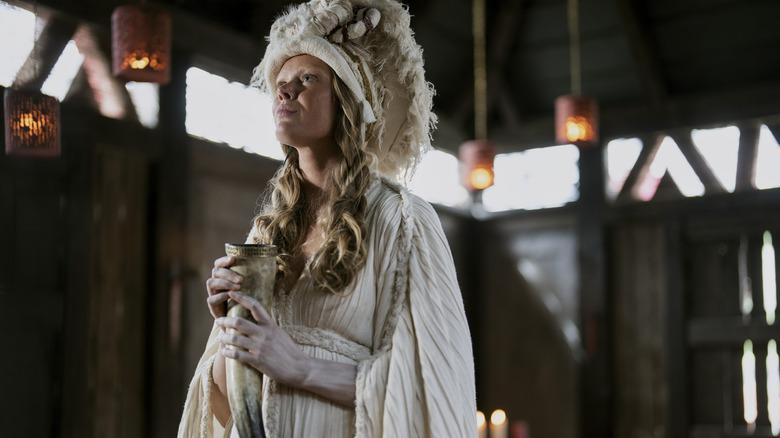Vikings: Valhalla Showrunner Jeb Stuart Explains How Season 2's Increased Diversity Reflects Viking Culture - Exclusive
When it comes to historical fiction, people love to use various time periods as an excuse for a lack of on-screen diversity, claiming it wouldn't make sense for a certain religion, race, or sexual orientation to exist in a certain place or time. Yet those assertions are incorrect more often than not. Virtually nowhere in history was devoid of different races (via Mythcreants). Conquerors are the ones who write the history books, and their biases are evident in how whitewashed history is.
As a result, it's important for shows like "Vikings: Valhalla" to accurately showcase the good, the bad, and the despicable when it comes to Viking history. Looper spoke to "Vikings: Valhalla" showrunner Jeb Stuart about Season 2's focus on diverse characters and the horrors of Viking culture — such as keeping women as slaves.
On the focus on diversity this season, Stuart explained that the Vikings "went all over the known world." He described, "There's Viking DNA all over the Middle East and all over Africa. It's unbelievable how it's been spread."
Diverse voices
Jeb Stuart continued, "How do we know how Vikings reacted to Black Africans? What we know is that they didn't really have a word for racism. They treated people in a way that I think we would like to feel, which is, 'If you can pull your weight, if you can do it, if you have value, I'm cool with that.' They added that culture. In [the] 11th century, that's a pretty progressive thought. That's a pretty progressive thought for the 21st century."
The vibe for Season 2 is to have the characters experience more of the world around them, and showcasing more cultures aligns with that. "Getting them out of Kattegat allows us to get into this broader cultural world out there, to find a Muslim woman who just happened, in the 11th century, to have the benefit of the House of Wisdom, which allowed women to have this incredible intellectual blossoming, so to speak," Stuart explained. "What would happen if a woman like that ended up in the northern part of the Rus and ran into Leif Eriksson? How neat would that be? It provided all sorts of avenues to go explore, to go play in."
Uncomfortable history
At the mention of the varied roles of women in the series — from slaves to intellects — Jeb Stuart recalled his own geographical connection to this dark aspect of Viking history. "The slavery issue is an important part for me because I thought it was fascinating," he explained. "We know that the Vikings raided a great deal in Scotland and Ireland. In fact, where I lived in Dublin, I could look out on Dalkey Island, which was the island where the Vikings kept their slaves, and then they transported them to Iceland and the Baltic and places like that. You sit there and you think, 'Gosh, women from all over, and men and children.'"
Too many period pieces try to gloss over the seedy underbelly of history, which leads to a fundamental misunderstanding of who these people were. "It's one thing to talk about slaves. It's another thing to be on a boat with them," Stuart said. "There's this idea, this cultural awareness that slavery exists — our Vikings knew that. Vikings were big slavers, and yet, what happens when our heroes are put into close quarters with these women? It's really interesting how that soup works, and it was fun to play in that area, fun to look at it hard and to make a story out of that."
"Vikings Valhalla" Season 2 is now streaming on Netflix.


